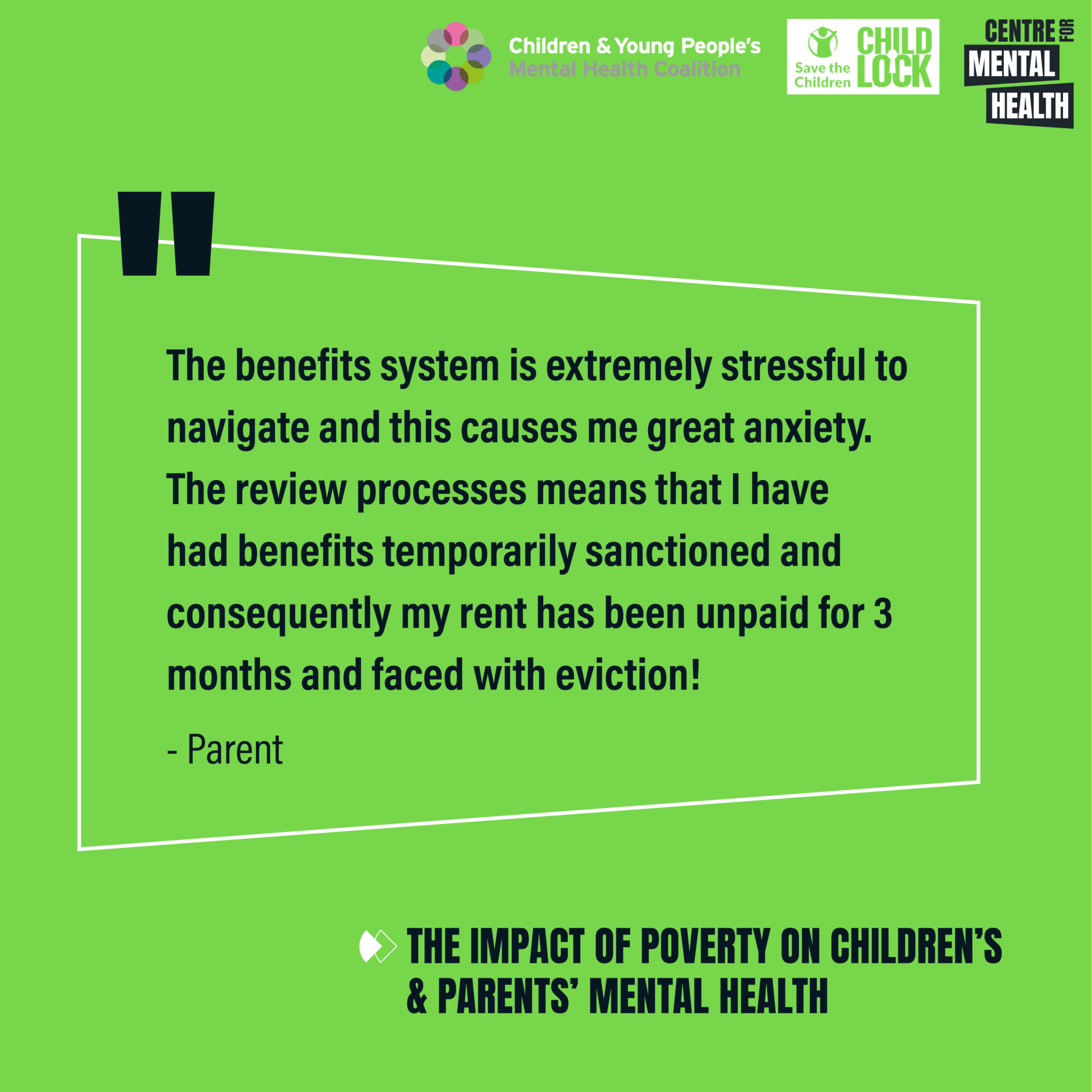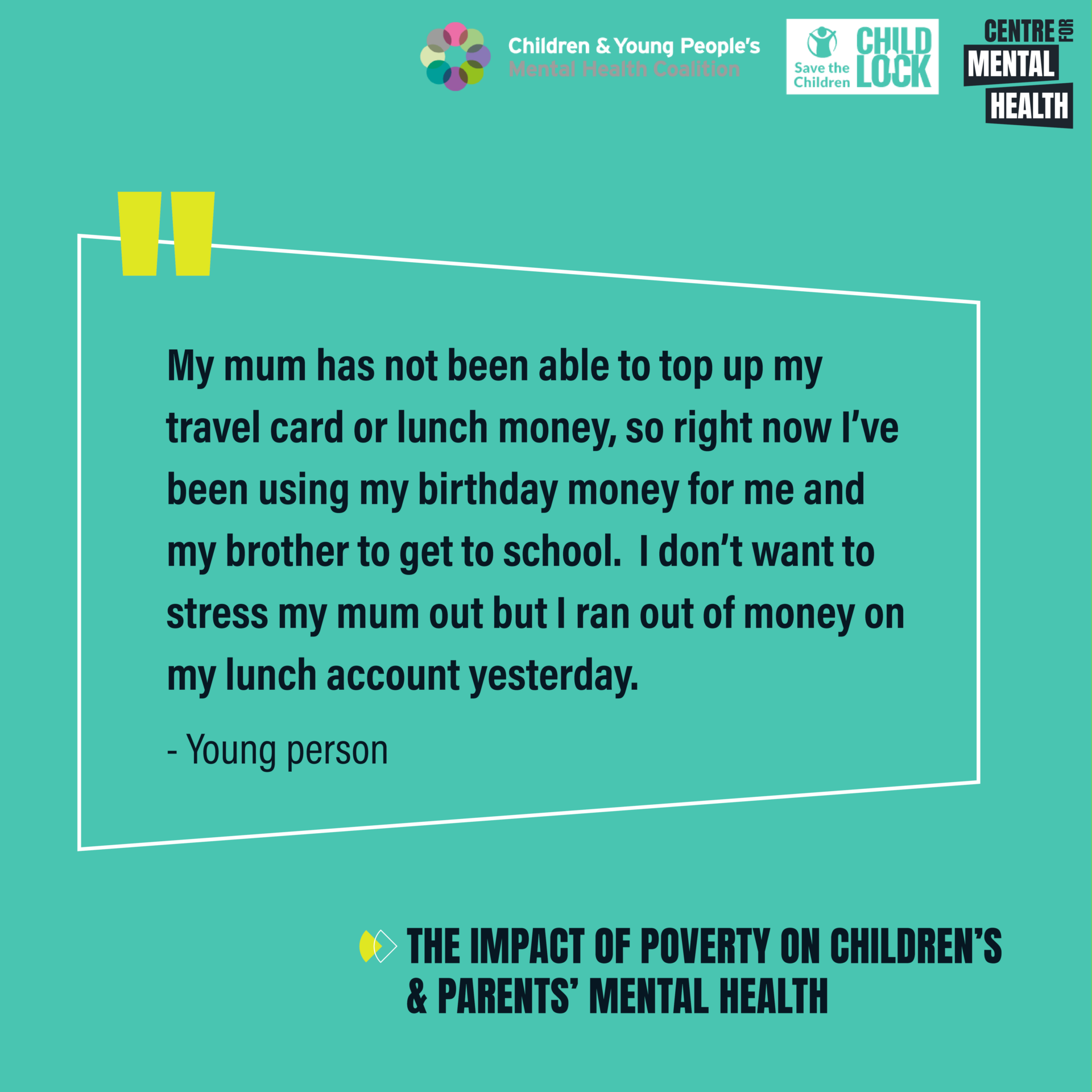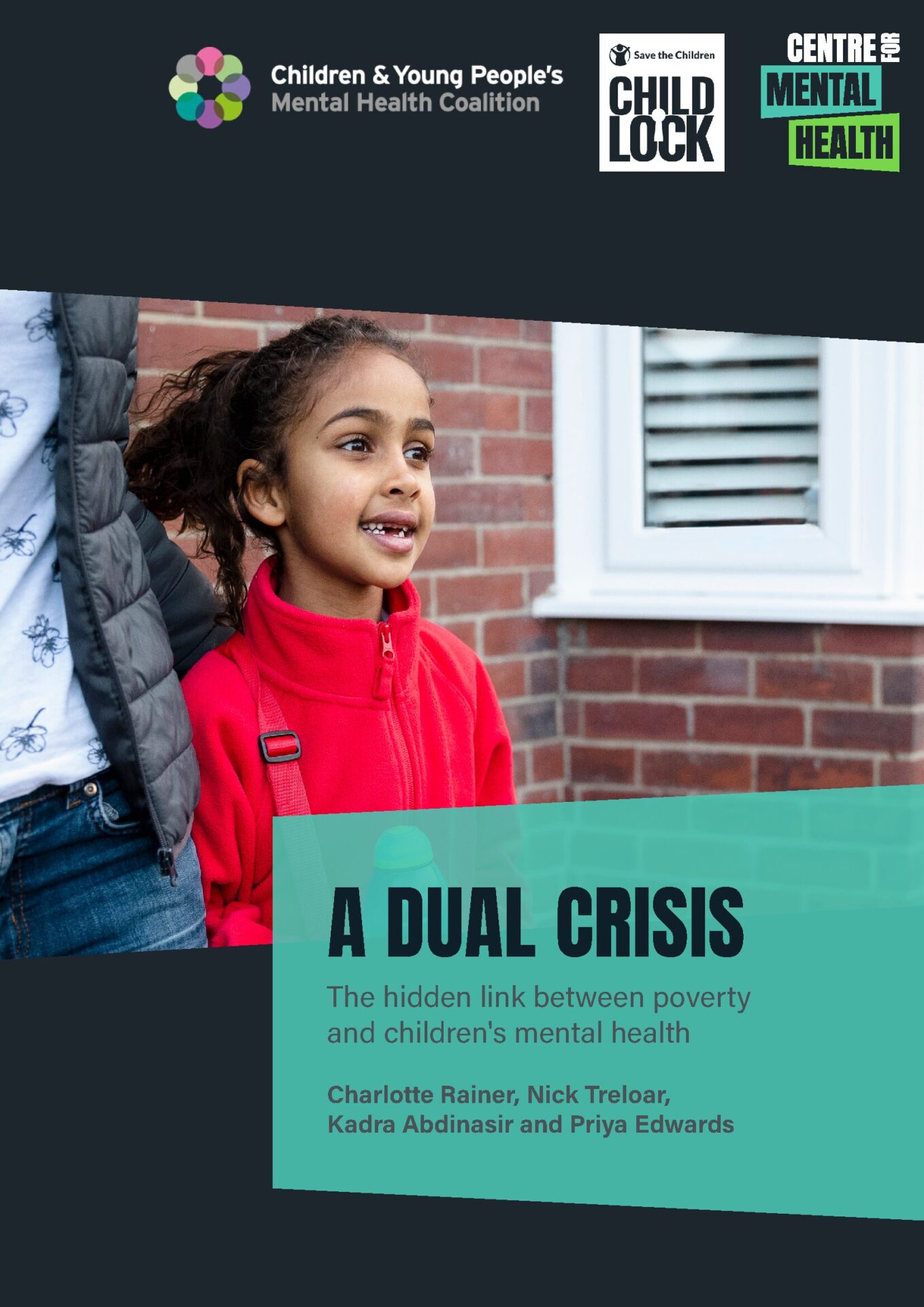The hidden link between poverty and children’s mental health
Charlotte Rainer, Nick Treloar, Kadra Abdinasir and Priya Edwards
Living in poverty has a devastating impact on children’s mental health. Money and mental health are inextricably linked; not having enough money leads to parental stress and guilt, which has a knock-on impact on children over the course of their lives.
In partnership with the Children and Young People’s Mental Health Coalition and Save the Children UK, this report explores the impact of poverty and benefit conditionality on families’ mental health. Based on research with parents and children, and a review of the evidence, the report finds that children are being failed by the state’s inability to combat the dual crises of poverty and mental health.
Young people described feelings of shame and embarrassment related to poverty and mental ill health, and a sense of social isolation at not being able to talk to their friends or professionals about their financial hardship. Parents claiming Universal Credit told us about the anxiety and stress caused by the assessment process, and their guilt at being unable to provide essentials like food and heating for their children.


The social security system was designed to offer families a safety net. However, the inadequacy of benefit levels, the caps in place which divert money away from families, and an increase in the use of sanctions and conditionality has meant that the social security system is often a cause, rather than a cure, for parental financial stress. And with rates of poverty twice as high among Asian and Black families than white families, some children are ‘overexposed’ to the dual risks of poverty and poor mental health.
We’re calling on the Government to deliver on its manifesto pledge of a comprehensive and effective child poverty strategy, and for it to go hand-in-hand with a cross-government mental health plan.





